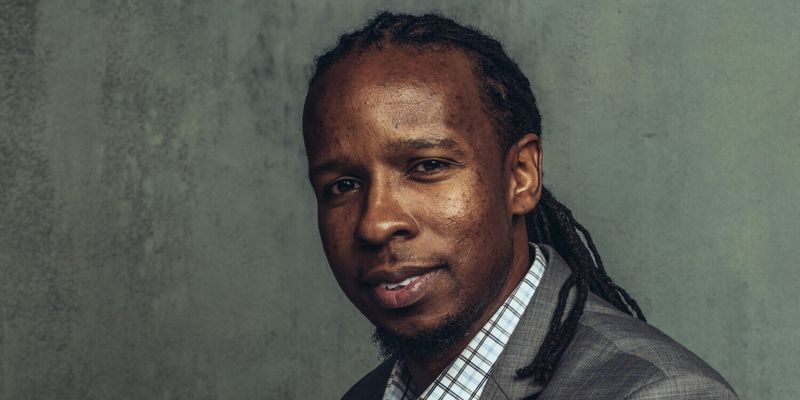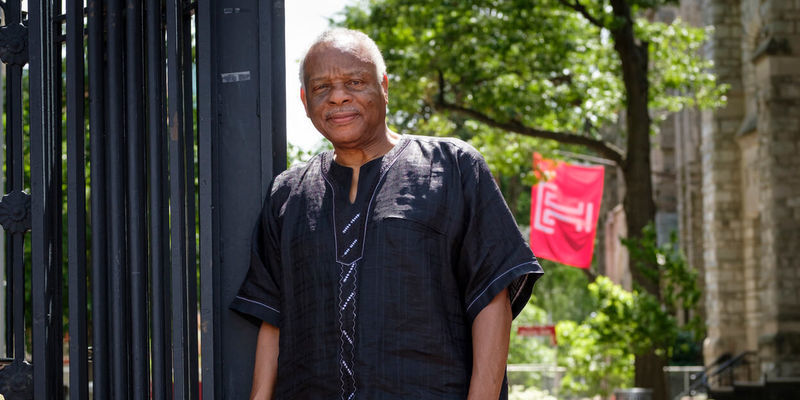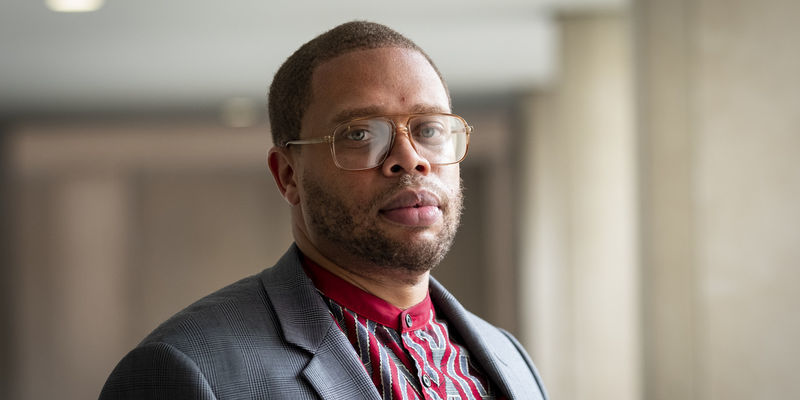Meet Temple’s new associate professors in the Department of Africology and African American Studies
Ifetayo Flannery, Kimani Nehusi, Reynaldo Anderson and Nah Dove describe their life experiences and the courses they teach in the Department of Africology and African American Studies.
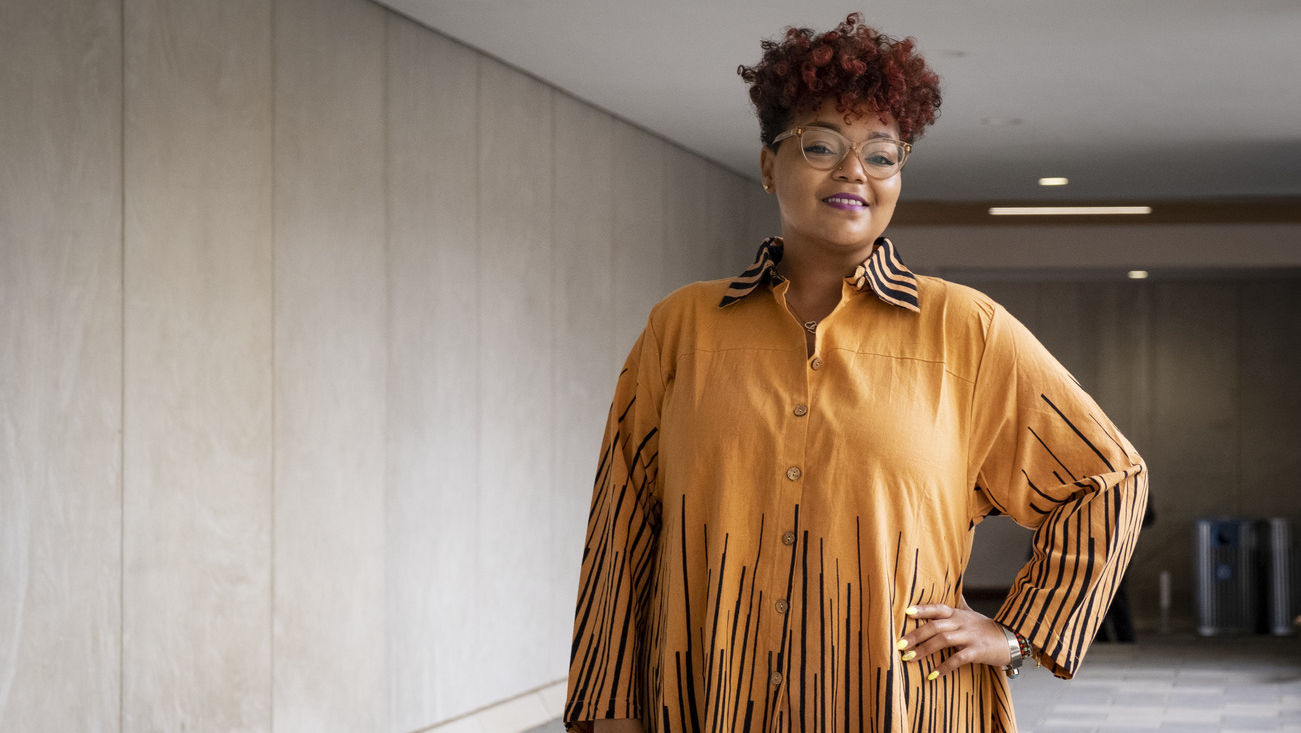
This fall, Temple welcomed four new associate professors into the Department of Africology and African American Studies in the College of Liberal Arts. The department emerged more than 40 years ago during the Black Power movement. Black students at Temple advocated for a Black studies department to combat racism, discrimination and oppression. It is one of the oldest departments of its kind in the country and the first to offer a doctoral program.
The new Africology and African American Studies faculty members are world-class professors who have traveled around the world, honing their craft as innovative, committed educators. Get to know this energetic group of new professors.

Ifetayo Flannery (Photography by Joseph V. Labolito)
Assistant Professor | Africology and African American Studies
Hometown: Atlanta | U.S.
Previous university: San Francisco State University
Temple Now: Why did you choose to teach at Temple?
Ifetayo Flannery: I’m still feeling the excitement around working at Temple because everybody knows it is the heartbeat of Philadelphia. They are very approachable and connected in real ways to the everyday, pressing issues of our city and society. Temple’s Department of Africology and African American Studies is at the forefront of innovative faculty research, producing students at the top-tier level in terms of PhDs. They are top three, if not number one, best places for faculty or students in my field to be.
TN: What courses and areas do you specialize in?
IF: I’ve been studying and working on Black psychology for a number of years. The field was created by a group of scholars in 1968—when they formed the Association of Black Psychologists in the [San Francisco] Bay Area—and is parallel to the development of Africology studies and African American studies. These are psychologists of all kinds who decided they wanted to approach mental health, consciousness and memory culture from a completely different angle in their training. There is an intention in Black psychology to develop analyses and interpretations of people’s culture and behavior from the standpoint of understanding African culture and behavior as normal. I also study the cultural coding of the African diaspora as it relates to its African ancestors to be able to interpret African American and African lives in a context that makes sense and adds meaning to people’s day-to-day lives.
TN: How has your experience of traveling to different countries helped you with your career?
IF: I believe it does change [it], the difference between reading things in a book and then seeing things and talking to people in other parts of the world. Having been in Cuba, Haiti, the Dominican Republic, Costa Rica and Brazil, I learned how Afro-Latinos and Afro-Brazilians make sense of their world and how that contributes to our collective psychology. I spent time in Nigeria specifically to research the impact of Yoruba culture and cosmology on the shaping of practices in the African diaspora. Traveling has done a lot for me in terms of business, personal relationships and just being a global citizen.

Kimani Nehusi (Photography by Joseph V. Labolito)
Associate Professor | Africology and African American Studies
Hometown: Queenstown | Guyana
Previous university: University of East London
TN: Why did you choose to teach at Temple?
Kimani Nehusi: I did not choose Temple, Temple chose me. I was invited to join the Department of Africology and African American Studies. However, it is entirely likely that I would have ended up right here if I were granted the choice, since the department is the world leader in the development and application—through scholarship and activism—of Africology, which is the study of African phenomena, both transcontinental and transgenerational, from African perspectives.
TN: What courses and areas do you specialize in?
KN: I have taught a number of courses. The main ones include: The History and Significance of Race in America, Language and Society in West Africa, The Black Child, and the Senior Seminar at the undergraduate level and African Civilization and Ancient Egyptian Language at the graduate level. My specialist areas are the history and culture of the African world; the Caribbean and ancient Egyptian languages; and topics such as carnival, libation, language and linguistic issues, names and naming, and education and socialization.
TN: What is your proudest career accomplishment?
KN: The attainment of some mastery of the ancient Egyptian language and the understanding of its application to African phenomena.
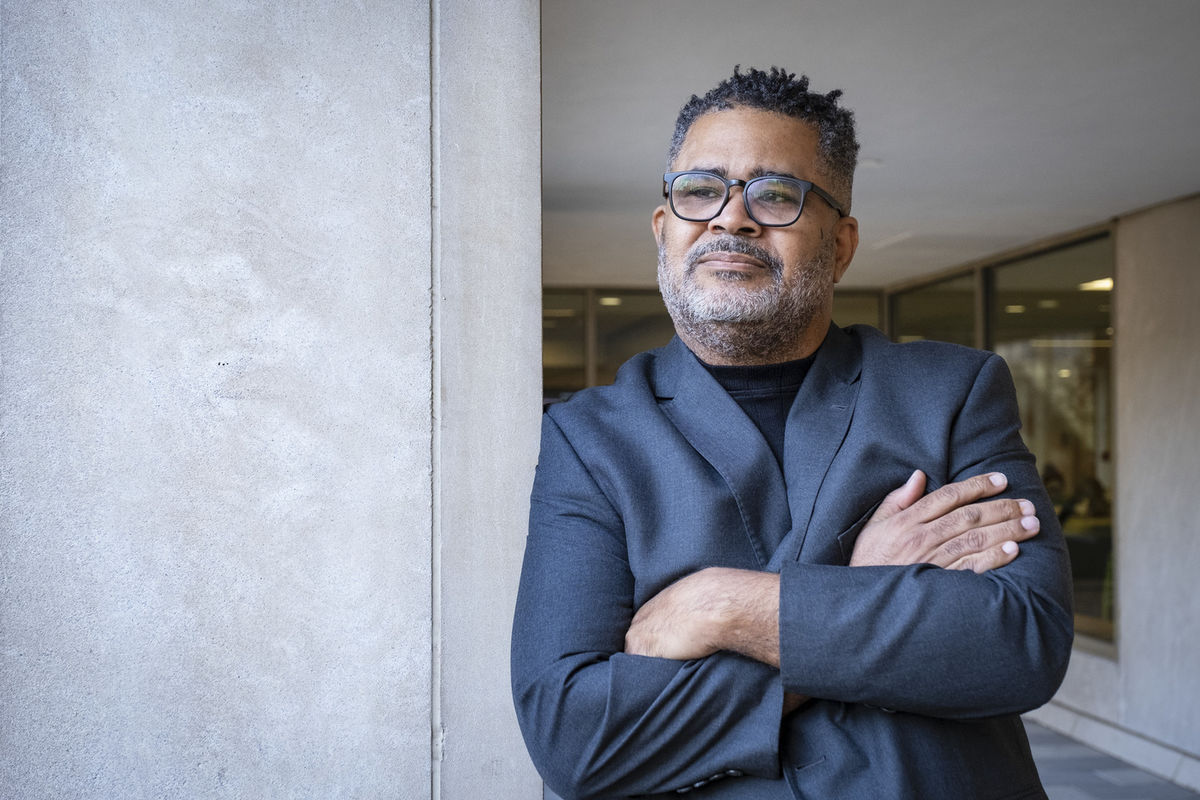
Reynaldo Anderson (Photography by Joseph V. Labolito)
Associate Professor | Africology and African American Studies
Hometown: Okinawa | Japan
Previous university: Harris-Stowe State University
TN: Where did you spend your time growing up?
Reynaldo Anderson: I was born in Okinawa, Japan, and spent time in Idaho, Texas, Ohio, Virginia and then Maryland. My father was a military intelligence officer in the Air Force during the Vietnam War. My grandfather served in the Korean War. I finished high school in Cheverly, Maryland. Then I got my undergraduate degree at Jackson State, got my masters from Oklahoma State and my PhD from Nebraska-[Lincoln]. Also, I have some military service with the [U.S.] Marine Corps and I served during the Cold War.
TN: What courses and areas do you specialize in?
RA: I'm teaching a course on Contemporary Black Poets, Mass Media and the Black Community. And next semester I will be teaching Theory and Methods in African American Studies and an Afrofuturism course. Afrofuturism is the history of African people in the world interpreted through a speculative lens by speculators. Some people might use science fiction with technology, philosophy and history. As these countries and societies continue to grow in the world, they’re also going to be affected by things like climate change, technological acceleration and other phenomena. And historically, those populations are understudied. However, it’s an emerging field of study with that intersection of culture with science and politics. It is the attraction for many different applications that people are involved with, such as cultural production, the arts, visual arts, music, philosophy and digital humanities.
TN: Why did you choose to teach at Temple?
RA: This department is number one in this field of Africology and African American studies and I admire Dr. [Molefi Kete] Asante’s work.
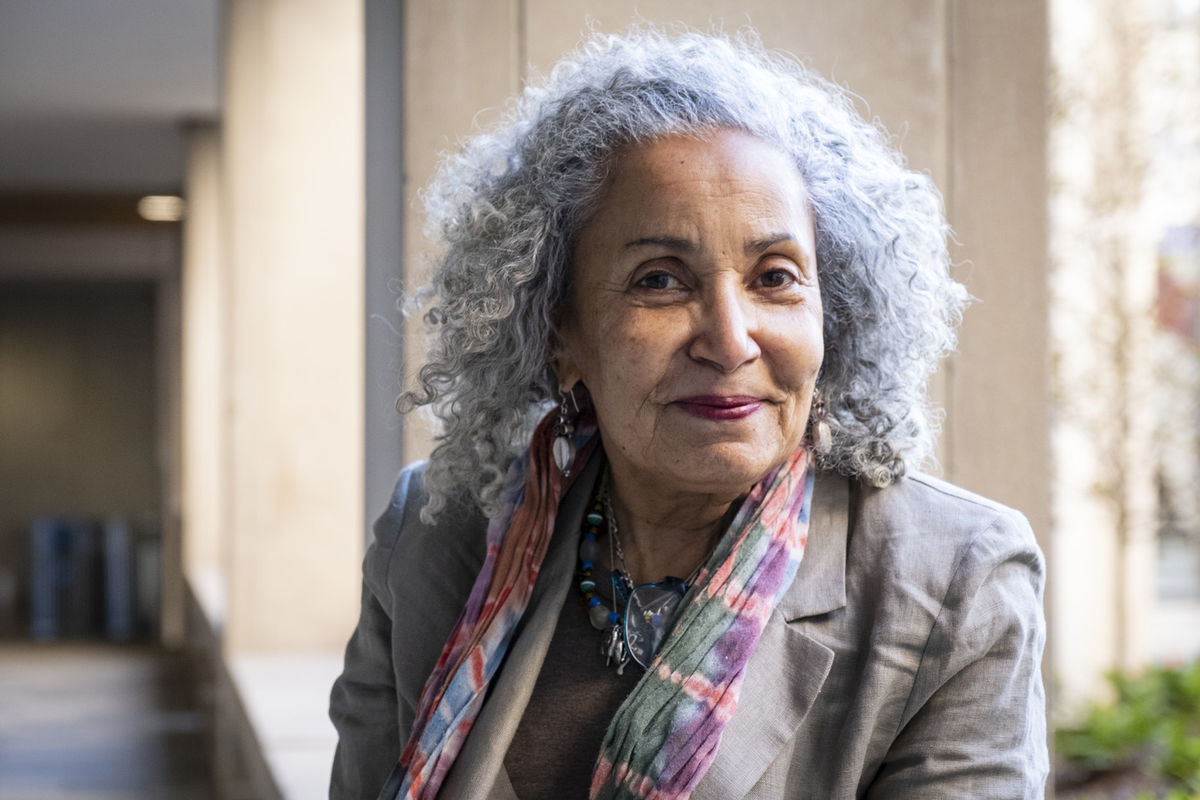
Nah Dove (Photography by Joseph V. Labolito)
Assistant Professor | Africology and African American Studies
Hometown: London | U.K.
TN: Where did you spend your time growing up?
Nah Dove: My father is African and is from Ghana and my mother is European and from the United Kingdom. I spent my formative years in West Africa and the U.K.
What courses and areas do you specialize in? I am teaching undergraduate students about the Black woman, the Black child and the Black family. The graduate courses are Seminar in the African American Woman, Ethnographic Research, and Theories and Methods in African American Studies.
TN: What are your main responsibilities within your role right now at Temple?
ND: I’ve developed curricula based on ancient African principles that display the truth about the history of Africa, which is the birthplace of humanity. I’m contributing an African woman’s perspective that is embraced by Africology, but my role is to really highlight the missing African woman in history. What's different about Africology is we recognize and embrace our cultural history. We see very seriously that culture is critical not only to the ability of all humans to exist, but it can be used academically as an analytical tool. My job is to bring the African woman back into the story. African women’s humanity has undergone debasement, particularly the blackest-skinned women. My position is to uplift, learn and teach about who these women really are and what they have contributed to humanity.
TN: What is your greatest career accomplishment?
ND: Working at Temple’s Department of Africology and African American Studies. This is the center of the change of the world. Africology is culturally grounded and built upon the love of Africa and African humanity. Dr. [Molefi Kete] Asante is an inspiration, a wonderful guide and educator. There's nowhere else in the world I would rather be.
